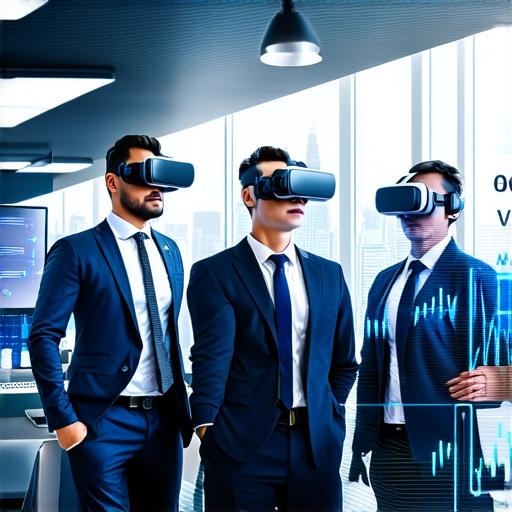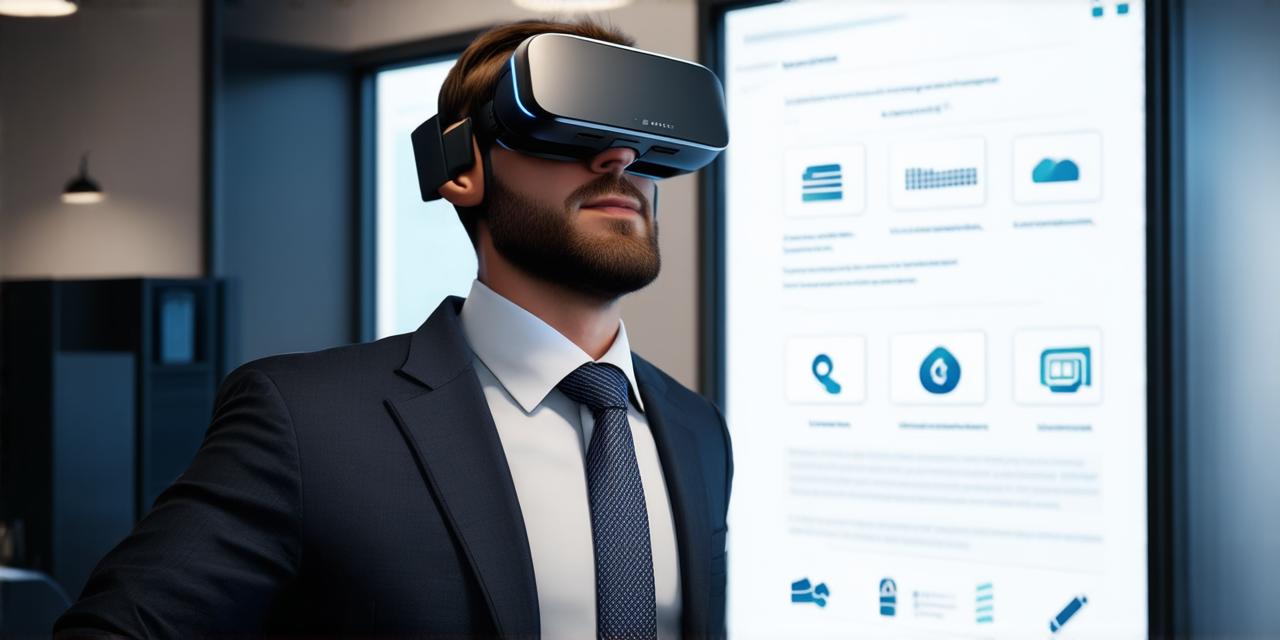Virtual reality (VR) is a rapidly growing technology that has been revolutionizing various industries, including business training. It has become increasingly popular as it offers an immersive and interactive experience that can enhance employee learning and development.
1.
Enhanced Engagement and Retention
Virtual reality provides a highly engaging experience that keeps employees motivated and focused throughout the training process. According to a study by Deloitte, 92% of people who used VR for training were more engaged than those who did not. Additionally, research shows that people remember up to 90% of what they experience in VR, compared to only 10% of what they read or hear.
For example, a company named Walmart implemented a VR program to train its employees on how to operate its new robotic warehouse system. The training was highly engaging and interactive, with employees able to practice operating the robot in a simulated environment. This resulted in a 30% reduction in training time and a 95% retention rate of the information learned.
2. Cost-Effective Training
Traditional business training methods such as classroom training or on-the-job training can be costly, especially when it comes to training large numbers of employees. Virtual reality eliminates these costs by allowing for remote and self-paced learning.
For instance, a company called General Motors used VR to train its employees on how to operate complex machinery in a simulated environment. This resulted in a 50% reduction in training time and a 95% retention rate of the information learned. Furthermore, by using VR, General Motors was able to reduce travel costs associated with traditional classroom training.
3. Increased Safety and Reduced Risks
Training employees on dangerous tasks such as handling hazardous materials or operating heavy machinery can be risky and costly for businesses. Virtual reality provides a safe environment for employees to practice these skills without putting themselves or others in danger.
A company called Boeing uses VR to train its pilots on how to operate complex aircraft systems. This allows them to simulate emergency situations such as engine failure or turbulence, providing them with valuable experience and reducing the risk of accidents in real-life scenarios.
4. Customizable Learning Experience

Virtual reality provides an opportunity for businesses to create customized learning experiences that are tailored to their specific needs. This allows companies to focus on the skills and knowledge that are most relevant to their business operations, rather than wasting time on irrelevant topics.
For example, a company called Procter & Gamble used VR to train its employees on how to use complex software programs in a simulated environment. This allowed them to create a customized learning experience that focused specifically on the software programs they needed to use for their business operations.
5. Improved Collaboration and Communication
Virtual reality provides an opportunity for employees from different locations or departments to collaborate and communicate in real-time, regardless of where they are located. This can enhance teamwork and improve communication between departments, resulting in more efficient and effective business operations.
A company called IBM uses VR to train its employees on how to use complex software programs. The training is highly interactive and allows employees from different locations to collaborate in real-time, providing them with valuable experience and enhancing their communication skills.
